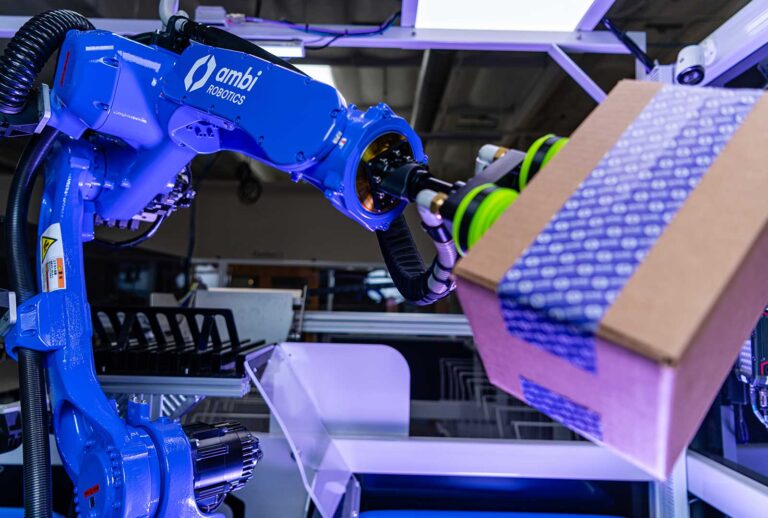Data is the New Space Race
Dr. Pippa Malmgren, Former Presidential Advisor, Economist, Best-Selling Author, and Policy Analyst joined Grayson Brulte on The Road to Autonomy podcast to discuss why data is the new space race.
The conversation begins with Pippa sharing insight into what her father, Mr. Harald Malmgren, a senior advisor to four consecutive U.S. Presidents (President John F. Kennedy, President Lyndon Johnson, President Richard Nixon, and President Gerald Ford) taught her about relationships.
My dad taught me how important it is to have trusted relationships even with people who are your opponents.
– Dr. Pippa Malmgren
When Pippa first joined the George W. Bush White House she called her counterpart who worked for President Bill Clinton to learn and develop a relationship.
Bipartisanship is something that is not very common today. Grayson and Pippa go on to discuss why bipartisanship is the way forward.
You are not elected to just represent one side. You are elected to represent the American public.
– Dr. Pippa Malmgren
Pippa has a talk to everyone policy which has allowed her to understand complex issues from different perspectives. With a new incoming administration, Grayson and Pippa discuss what the Biden administration should focus on as it relates to economic policy.
As America awakes from a COVID-19 slumber, entrepreneurs will emerge with new, stronger businesses that will create jobs and have a positive economic impact on society.
Americans now have increased savings, stimulus checks, and commission-free trading. This is causing consumer habits to change. The world is becoming digitized and consumers are investing in the stock market like never before.
While consumer habits are changing, Government habits are changing as well. The United States is printing trillions of dollars with no plan to repay the National Debt. Does the debt even matter?
Can the United States keep printing money? Grayson asks this question to Pippa and the answer might even surprise you – The United States can keep printing money indefinitely.
With a highly digitized society, comes security issues that can have a profound impact on geopolitical politics and the global economy. Pippa and Grayson go onto discuss data gathering and the U.S. Department of Commerce Entity List.
Data gathering is just the first step in capturing emotions.
If you know how I emotionally react, then you know how to sell to me, but you also know how to negotiate with me.
Facial recognition is really about deep insight into your thought process that even you do not know.
– Dr. Pippa Malmgren
What happens when autonomous vehicles start to gather data? Pippa shares examples of how that data can be used against consumers and why it could eventually lead to Surveillance Capitalism.
Grayson asks Pippa about privacy. What regulations are needed to protect consumers from the invasion of privacy? What happens if consumers are forced to show their medical history before entering a restaurant or getting on a plane?
This is a future that some individuals envision and want to see happen for their own personal and political gains. The big ideas coming out of California are not resonating as a record number of individuals and businesses are leaving the State in droves.
One of the places those individuals and businesses are moving to is Austin, TX. The movement is being driven by years of bad policy and over-regulation. This conversation evolves into a discussion about open communication and why individuals are done with being censored and de-platformed.
Grayson and Pippa discuss China and the current situation with Alibaba founder, Jack Ma. This situation raises the question of, who wants to do business in China. Does it lead to an exodus of foreign capital from China?
With the potential exodus of foreign capital from China and a revamped manufacturing industry in the United States, apprenticeships could make a comeback. These apprenticeships will lead to new high-paying jobs.
As the economy becomes more digitized and automated, Grayson and Pippa discuss the myth that automation will kill jobs. In fact, it is the opposite. Automation will create jobs. Pippa goes onto share historical contexts of why automation will create jobs.
You cannot say that automation equals unemployment because it’s just not true. Automation equals better employment.
– Dr. Pippa Malmgren
Automation requires semiconductors and software to operate. Grayson and Pippa discuss the growth of the semiconductor industry. The exponential growth of Taiwan Semiconductor and the geopolitical issues that this is causing in Asia.
Wrapping up the conversation, Pippa shares her thoughts on what new trends she sees emerging over the next four years.
Listen on Apple Podcasts | Spotify
Recorded on Monday, January 18, 2021




